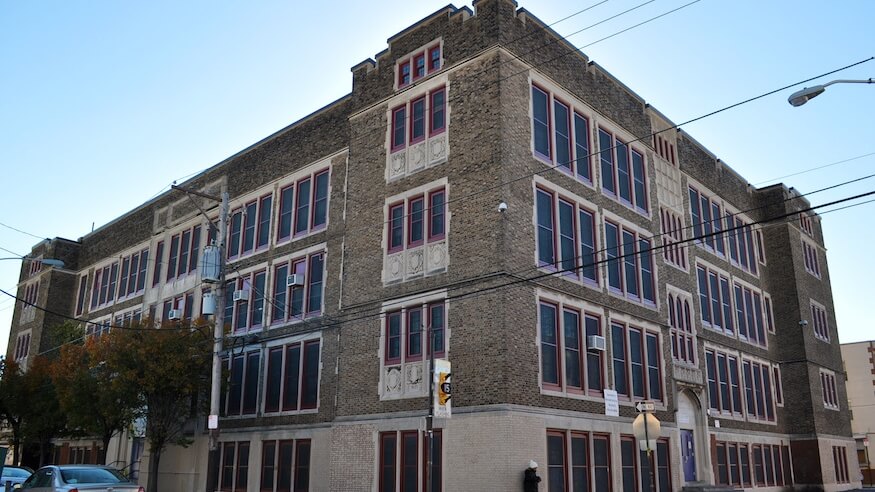
It has been a little more than a week since a Philadelphia mother was placed under arrest by ICE officials outside of her child’s South Philadelphia school.
But the concerns throughout the community have not faded.
On Tuesday, Feb. 11, Carmen Lara-Marquez, 30, was detained outside Eliza B. Kirkbride Elementary in South Philadelphia. It was reported that the incident occurred on Dickinson and Seventh streets.
This incident has sparked a lot of questions and concerns about ICE’s practice of not arresting people at sensitive locations.
ICE claims it does not enforce actions at sensitive locations such as churches, hospitals and schools. According to ICE’s website, the policy states, “The ICE sensitive locations policy, which remains in effect, provides that enforcement actions at sensitive locations should generally be avoided, and require either prior approval from an appropriate supervisory official or exigent circumstances necessitating immediate action.”
According to Philadelphia School District spokesperson Monica Lewis, the district was unsure of the reasoning behind the arrest.
Although there have been conflicting reports about where exactly the arrest took place—whether on school property or across the street—the incident has left parents and community members on edge.
“Picking up a parent at the time of day when they’re picking up a child— maybe is not violating the sensitive locations memo, but it’s hard to interpret that as anything but trying to incite fear in immigrant communities,” said Sundrop Carter, executive director of Pennsylvania Immigration and Citizenship Coalition.
Carter added that the best thing immigrants can do is educate themselves and make sure they know their rights. PICC offers a toolkit online that specifics advice for engaging with ICE officers, both at their home and designed ‘sensitive locations,’ such as schools.
“In accordance with a policy memorandum released by the Immigration and Customs Enforcement (ICE) agency in 2011, schools are considered ‘sensitive locations,’ and I.C.E. officers and agents are to refrain from enforcement actions on school property except in extreme cases,” Superintendent William Hite said in a statement.
“We are unwavering in our commitment to have all schools remain safe havens where families can support their child’s education without risk or concern for their personal freedom,” he added.
According to ICE officials, Honduran national Carmen Lara-Marquez was arrested for immigration violations near her residence. She was then released for humanitarian reasons.
“In May 2012, an immigration judge issued Lara-Marquez a final order of removal in absentia. Humanitarian factors and potential mitigating circumstances are considered for every individual encountered by ICE. A detention decision is made on a case-by-case basis based upon the totality of the circumstances,” ICE officials said in an email to Metro.
Lara-Marquez’s arrest comes hot on the heels of President Donald Trump’s enhanced efforts at securing the nation’s border in his ongoing combat against illegal immigration and sanctuary cities across America.
The New York Times recently reported, “The Trump administration is deploying law enforcement tactical units from the southern border as part of a supercharged arrest operation in sanctuary cities across the country… The specially trained officers are being sent to cities including Chicago and New York to boost the enforcement power of local Immigration and Customs Enforcement officers, according to two officials who are familiar with the secret operation. Additional agents are expected to be sent to San Francisco, Los Angeles, Atlanta, Houston, Boston, New Orleans, Detroit and Newark, N.J.”
Philadelphia is a sanctuary city, meaning city employees— including law enforcement—are not permitted to inquire about immigration status. This policy aims to empower community relationships and trust between the city and its people.
According to the City of Philadelphia Office of Immigration Affairs, “Our police officers do not ask about the documentation status of those they encounter. But we do not overlook crime and we do investigate crime regardless of immigration status. Philadelphia’s Prison System only responds to ICE requests to hold a detainee if ICE has a judicial, criminal warrant. We have this policy because federal courts have said it is unconstitutional for us to do otherwise.”
In correlation with the city’s immigration policies, the School District of Philadelphia is also prohibited from asking students about immigration status. The district circulated a “tool kit” in 2017, with information on how educators should deal with immigration issues and according to Lewis, the district is in the process of sending out updated communications to its staff.
“Our district is a learning community where everyone is valued and respected,” said Hite. “And making sure all students are educated in a safe and supportive environment is our number one priority.”
Rebecca Glasser-Baker contributed to this story.




























